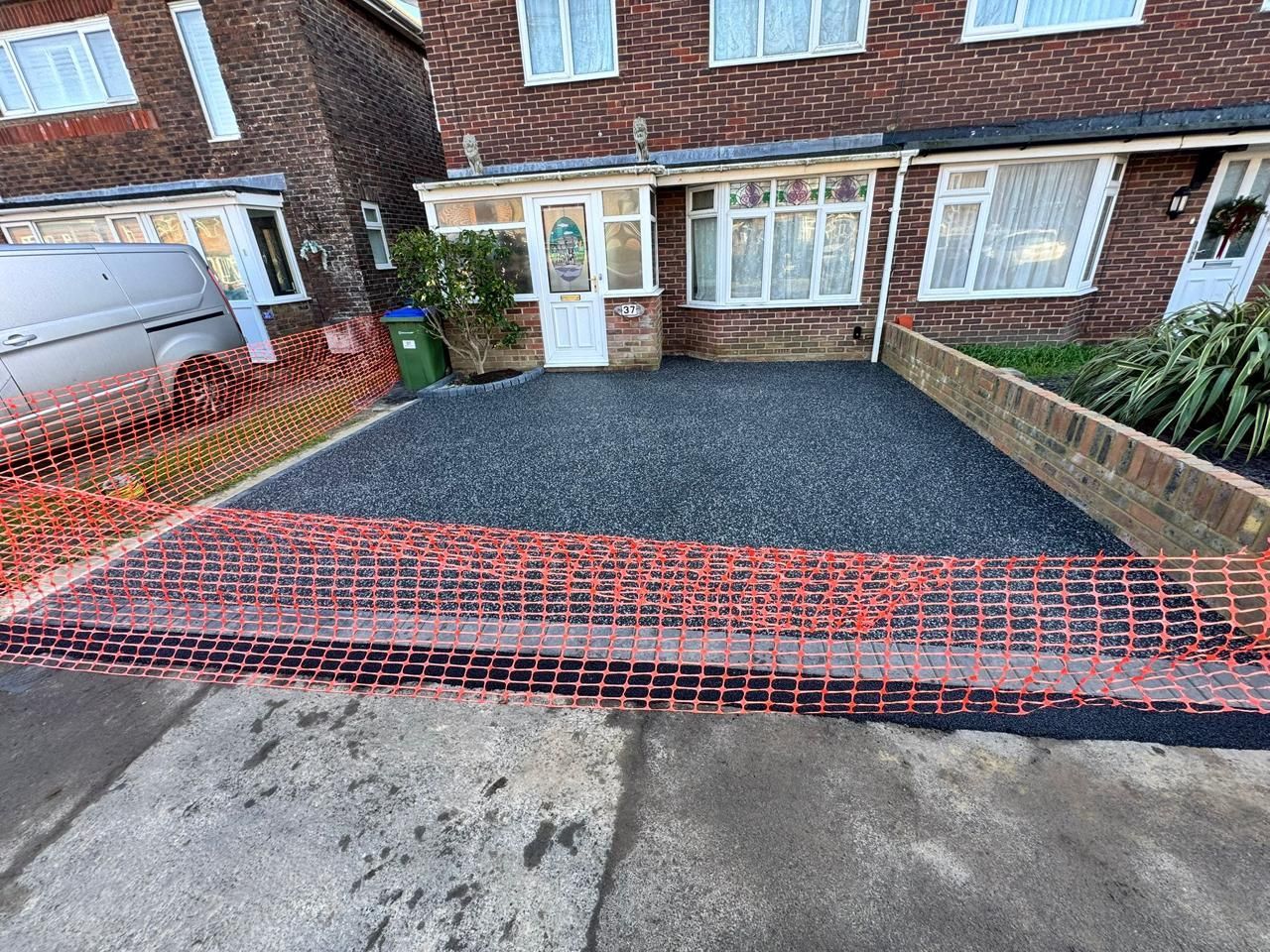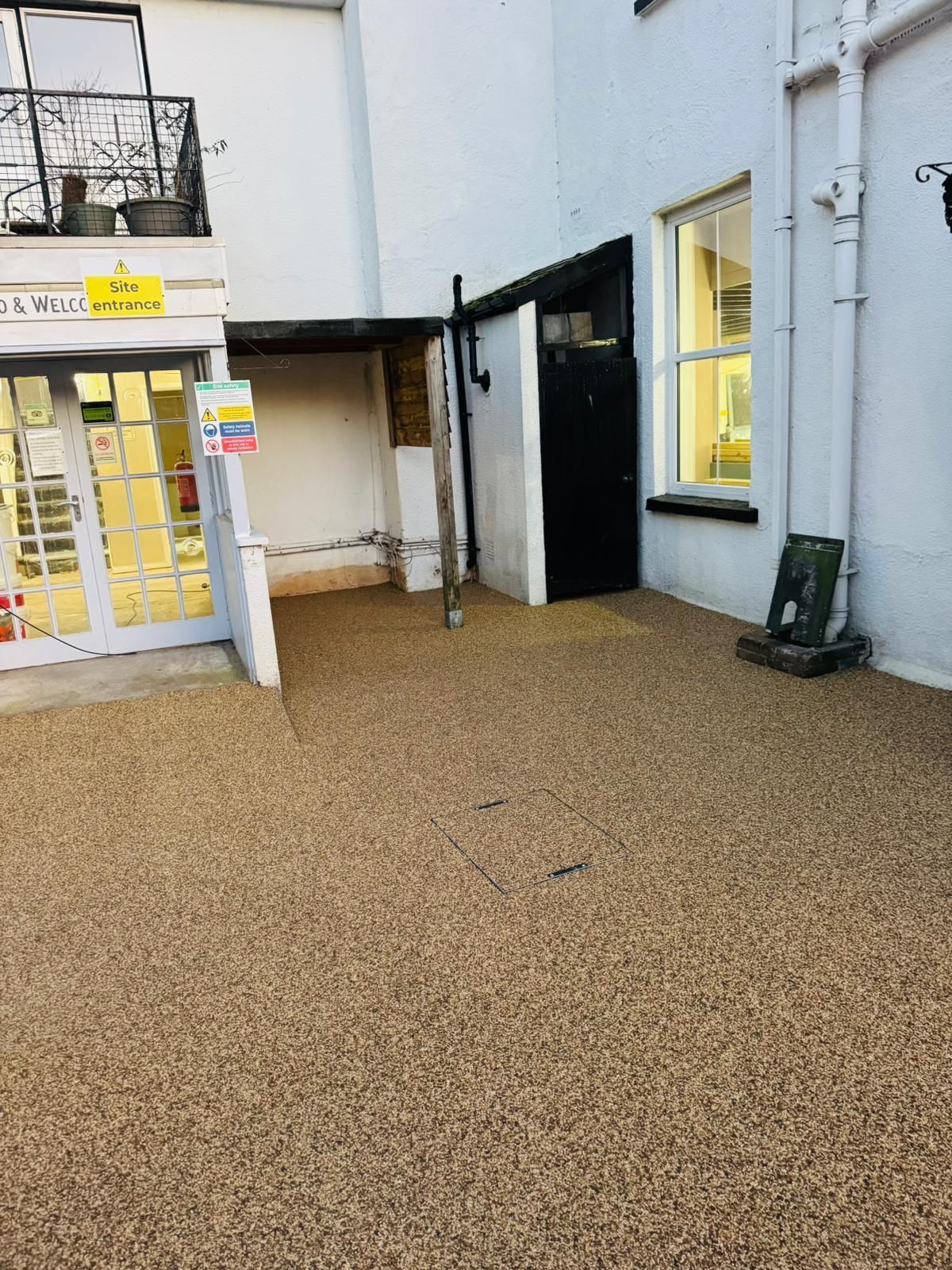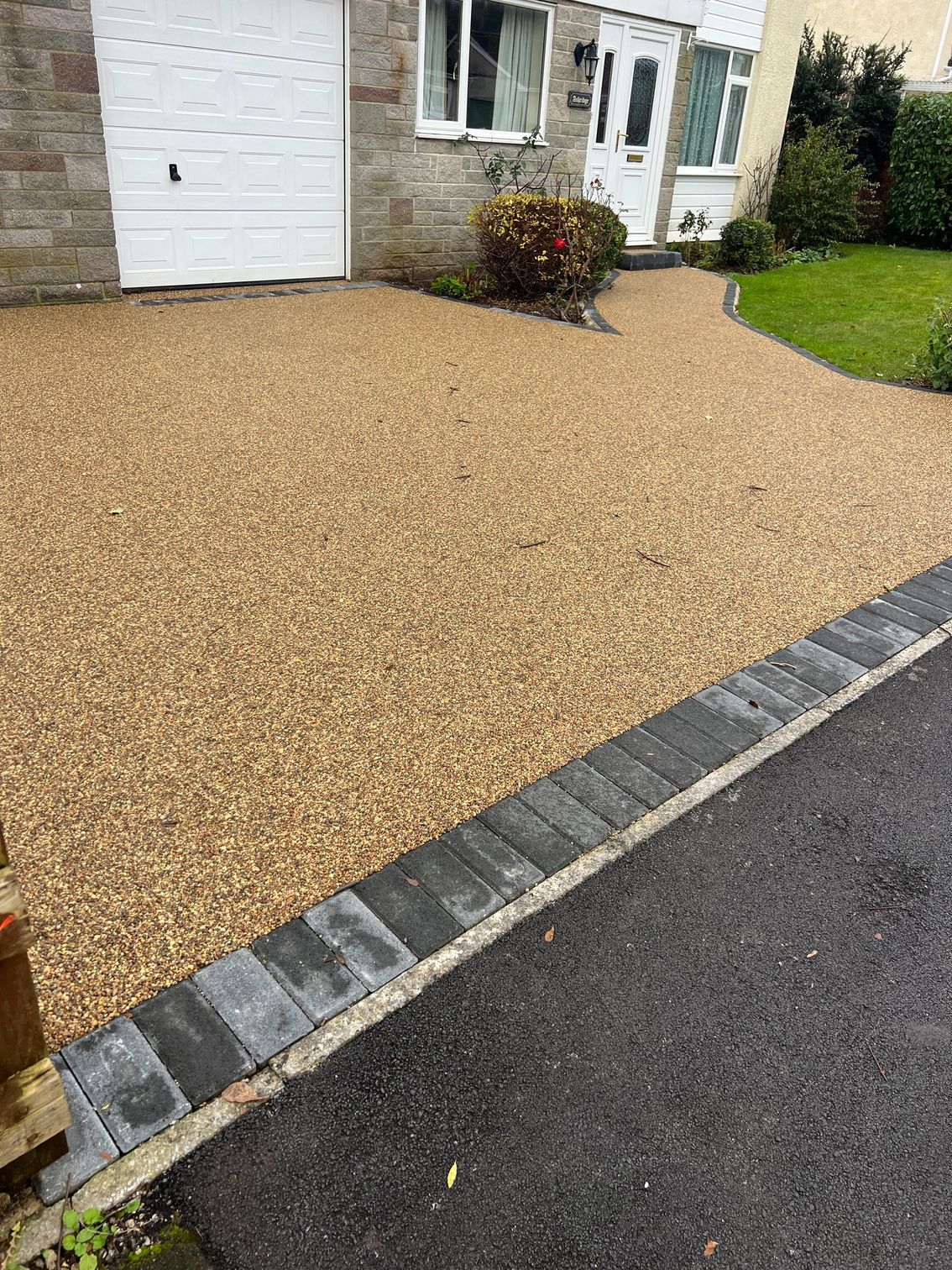Design Precision: Creating Geometric Driveway Patterns for Corporate Branding
Design Accuracy: Establishing Geometric Driveway Designs for Business Identity
Safety regulations provide critical benchmarks for surface performance, particularly in wet conditions. BS 7976-2 slip testing establishes the methodology for measuring slip resistance, which professionals use to verify the performance of resins. These tests ensure that surfaces meet the requirements for HSE-approved surfacing, giving property owners confidence in their safety investment.
Accessibility and Legal Requirements
Properly installed resin surfaces typically meet Disability Discrimination Act (DDA) compliant standards, ensuring safe access for all individuals, regardless of their mobility challenges. The
BS EN 1341 slip resistance specifications further define the minimum performance levels required, particularly for surfaces that may become wet during everyday use.
Understanding Rating Systems
Resin surfaces are classified according to established
anti-slip rating classifications, which provide clear guidance on their appropriate applications. The German
R10-R13 slip resistance ratings offer a straightforward scale for evaluating potential slip hazards, with higher numbers indicating better performance in wet conditions.
Quality resin installations typically achieve an R-value of 11 or higher, making them suitable for areas prone to moisture.
Risk Mitigation and Insurance
Property owners should consider how surfacing choices affect their
public liability insurance requirements. Surfaces that meet or exceed
commercial safety standards can reduce liability exposure and insurance costs. Even for residential properties, understanding
the regulations regarding drainage and slip resistance for driveways provides essential legal protection.
Professional Verification
Reputable resin installers provide slip resistance certification, documenting the specific performance characteristics of the installed surface. This documentation serves as evidence of due diligence in creating a safe environment for both residents and visitors.
Understanding the regulatory framework surrounding slip resistance helps property owners make informed decisions about surfacing options.
By choosing resin surfaces that meet or exceed these standards, you protect both the people who use your property and your legal interests—a winning combination that makes regulatory compliance a benefit rather than a burden.
View our YouTube video on the subject below:




